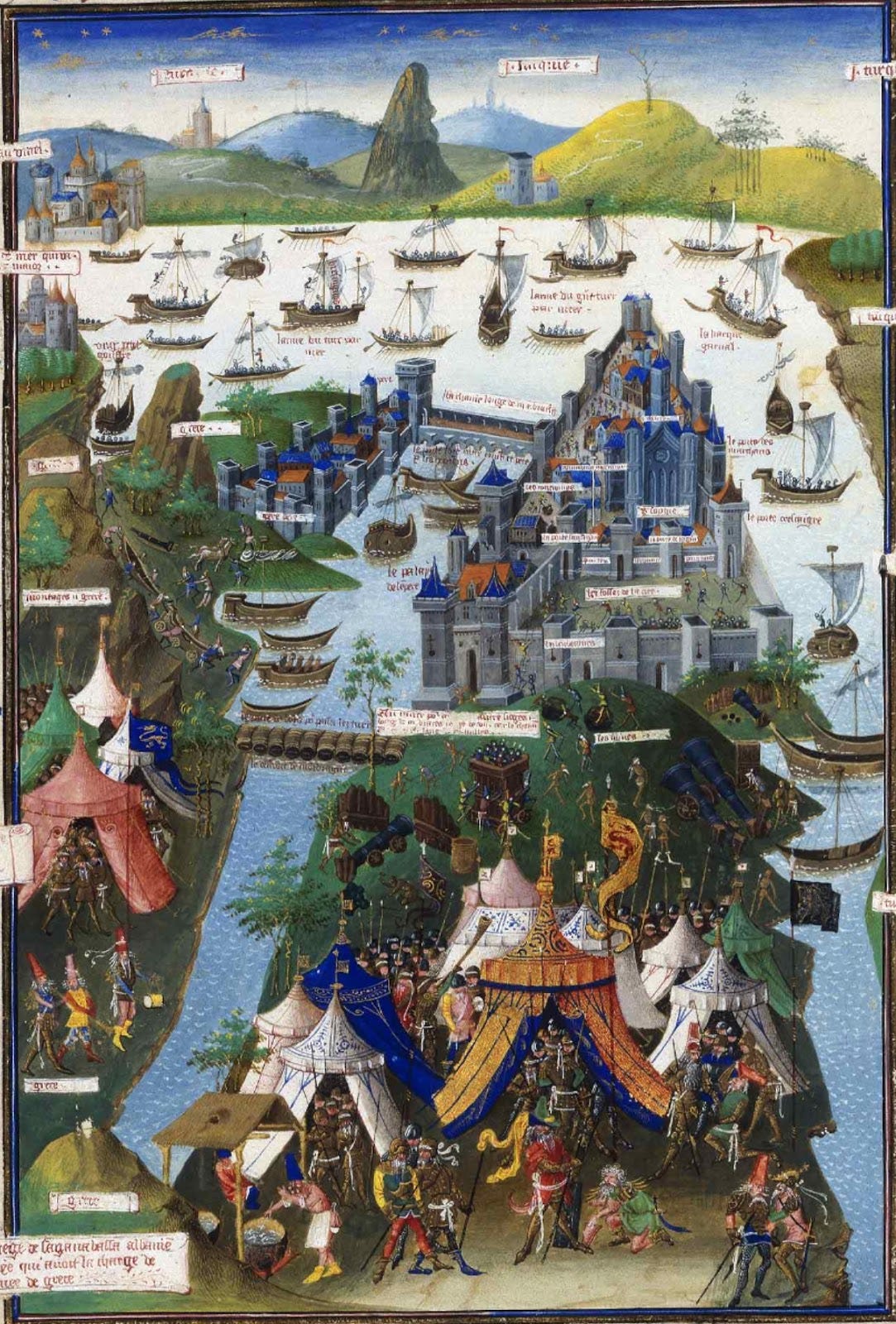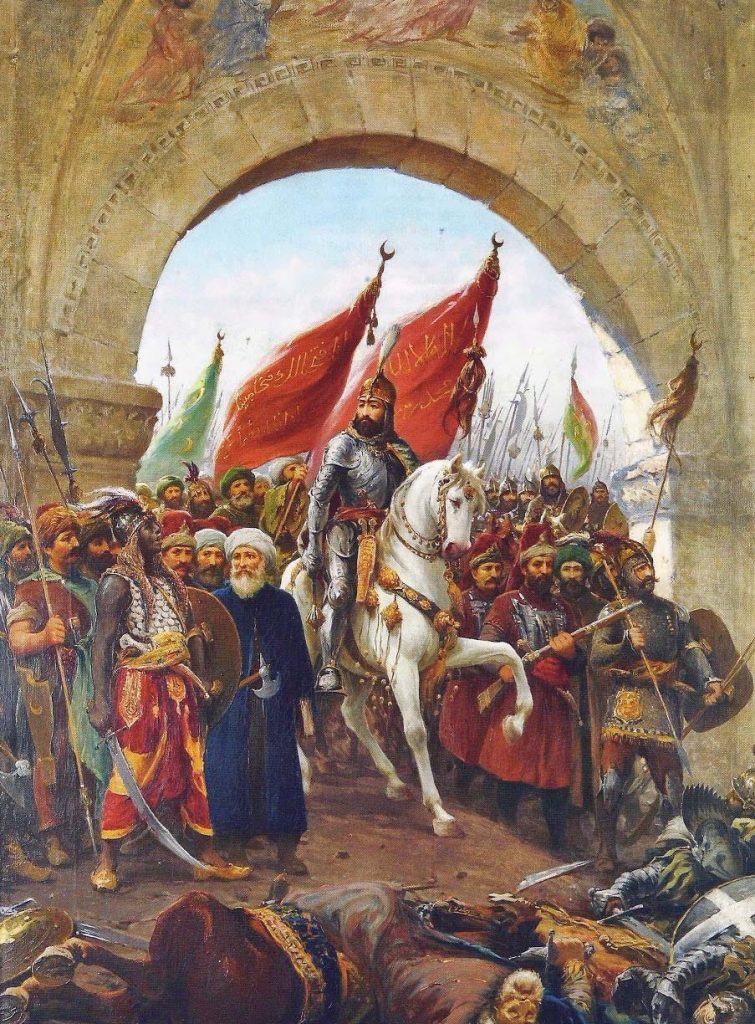Have you ever wondered why Constantinople was such a big deal for the Ottomans? This city wasn’t just any place on the map—it was the key to power, wealth, and control.
Understanding why Constantinople mattered so much can change the way you see history and even the world today. Keep reading, and you’ll discover the secrets behind the city’s importance and how it shaped the Ottoman Empire’s rise to greatness. Your curiosity is about to pay off.
Geographical Advantage
The geographical location of Constantinople was a major factor in its importance to the Ottomans. Sitting at the crossroads of continents and waterways, it offered strategic advantages that were hard to match. Understanding these advantages helps you see why controlling Constantinople was a game-changer for the Ottoman Empire.
Connecting Europe And Asia
Constantinople sat on the narrow strait called the Bosporus, which separates Europe from Asia. This unique spot made it a natural bridge between two continents. For the Ottomans, this meant they could easily move armies, goods, and ideas between Europe and Asia without long detours.
Imagine having a city that lets you reach two huge markets just by crossing a bridge. This gave the Ottomans a huge edge in trade and military movements. If you ever wonder how geography shapes power, Constantinople is a clear example.
Control Over Key Trade Routes
The city’s position also gave the Ottomans control over important trade routes connecting the Black Sea to the Mediterranean. This control allowed them to regulate and tax the flow of goods like silk, spices, and grain. It wasn’t just about money—it was about controlling the flow of wealth and resources.
Think about how owning a toll gate on a busy highway would give you power. That’s exactly what Constantinople offered. The Ottomans could influence not only economics but also politics by managing these critical trade routes.

Credit: en.wikipedia.org
Military Significance
Constantinople held immense military value for the Ottomans. It stood as a critical point for defense and control. Its strategic position allowed the Ottomans to protect their empire and plan further conquests. The city’s unique geography and fortifications made it a powerful military asset.
Defensive Stronghold
The city was surrounded by massive walls and water barriers. These defenses made Constantinople difficult to attack. The Golden Horn and the Bosporus Strait added natural protection. The city acted as a shield against enemy invasions from Europe and Asia. Holding Constantinople helped the Ottomans keep their empire safe.
Launchpad For Expansion
From Constantinople, the Ottomans launched attacks into Europe and the Middle East. It was a key base for their navy and army. The city’s location allowed quick movement of troops and supplies. Controlling Constantinople gave the Ottomans power to expand their empire efficiently. It became the heart of their military campaigns.
Economic Impact
Constantinople held immense economic value for the Ottoman Empire. Its strategic location bridged Europe and Asia. This position made it a hub for goods, cultures, and ideas. The city’s wealth helped fund the empire’s expansion and governance. The economic benefits of Constantinople shaped the Ottoman Empire’s power and influence for centuries.
Center Of Commerce
Constantinople was a bustling center of trade and commerce. Merchants from Europe, Asia, and Africa met in its markets. The city’s ports attracted ships carrying spices, silk, and precious metals. These goods passed through the city’s bazaars, creating wealth for traders and the state. The city’s markets connected many trade routes, boosting economic activity.
Revenue From Trade And Taxes
The Ottomans collected taxes from all goods entering and leaving the city. Customs duties on trade generated steady income for the empire. Taxes on merchants, shops, and marketplaces added to state revenue. This income supported the Ottoman military and administration. Constantinople’s wealth helped maintain the empire’s stability and growth.
Cultural And Religious Influence
Constantinople was more than just a strategic city for the Ottomans; it stood at the crossroads of culture and religion. Its cultural and religious significance shaped the identity of the empire and influenced its policies. Understanding this influence helps you see why the city remained central to Ottoman ambitions and legacy.
Symbol Of Islamic Power
When the Ottomans captured Constantinople in 1453, they transformed it into a powerful symbol of Islamic dominance. The city became the new capital of the Ottoman Empire, representing the triumph of Islam over the Byzantine Christian world.
The conversion of the Hagia Sophia from a cathedral to a mosque marked a clear message. It showed the world that Constantinople was now the heart of Islamic culture and political authority. This shift gave the Ottomans a religious legitimacy that boosted their influence across Muslim lands.
Have you ever thought about how a single building can symbolize the strength of an entire empire? For the Ottomans, Constantinople was exactly that—a living emblem of their faith and power.
Blend Of Cultures And Traditions
Constantinople was a melting pot of diverse cultures long before the Ottomans arrived. The Ottomans didn’t erase this diversity; instead, they added to it by welcoming different ethnic groups and traditions.
- Greek Orthodox Christians continued to practice their faith under Ottoman rule.
- Jewish communities found refuge and flourished in the city.
- Islamic art and architecture blended with Byzantine styles, creating unique cultural expressions.
This blend made Constantinople a vibrant, cosmopolitan center. It allowed the Ottomans to govern a multi-ethnic empire effectively, using cultural diversity as a strength rather than a weakness.
Can you imagine ruling a city where different religions and customs not only coexist but also enrich each other? Constantinople was exactly that kind of place under Ottoman rule, showing you the power of cultural integration.
Political Authority
Political authority was a key reason Constantinople was vital to the Ottomans. The city was not just a strategic location; it was a symbol of power. Controlling Constantinople meant controlling a significant part of the world. This city was a gateway between Europe and Asia, making it a crucial hub for politics and trade.
Capital Of The Ottoman Empire
Constantinople became the heart of the Ottoman Empire. It served as the capital from 1453. The city’s strategic position helped the Ottomans manage their vast lands effectively. As the capital, Constantinople hosted the sultan’s court. This made it the center of political decisions and administration. The city’s infrastructure supported governance, aiding in efficient rule.
Legitimacy And Prestige
Controlling Constantinople boosted the Ottomans’ legitimacy. It showed their strength and ability to conquer significant territories. The city had a rich history, enhancing the empire’s prestige. Holding Constantinople linked the Ottomans to the legacy of the Roman Empire. This connection added to their image as a powerful and enduring empire. The city’s religious significance also helped. It positioned the Ottomans as leaders in the Muslim world.

Credit: brucewilsonauthor.medium.com

Credit: uk.news.yahoo.com
Frequently Asked Questions
Why Was Constantinople Strategically Important To The Ottomans?
Constantinople was key due to its location between Europe and Asia. It controlled major trade routes and military access to both continents, boosting Ottoman economic and political power.
How Did Constantinople’s Fall Impact The Ottoman Empire?
The fall in 1453 marked Ottoman dominance in the region. It allowed expansion into Europe and control over vital trade, solidifying their empire’s strength and influence.
What Economic Benefits Did Constantinople Offer The Ottomans?
Constantinople was a trade hub linking East and West. It generated wealth through commerce, taxes, and control of key maritime routes, enhancing Ottoman prosperity.
Why Was Constantinople Culturally Significant To The Ottomans?
Constantinople was rich in history and architecture. It became a cultural center blending Byzantine and Ottoman traditions, symbolizing imperial continuity and religious authority.
Conclusion
Constantinople gave the Ottomans control over key trade routes. It was a bridge between Europe and Asia. The city offered strong defense with its massive walls. Its rich culture and wealth helped the empire grow. Holding Constantinople boosted the Ottomans’ power and influence.
This city shaped their history and success. Its importance lasted for centuries. Understanding why helps us grasp Ottoman strength. A vital prize worth every effort.





